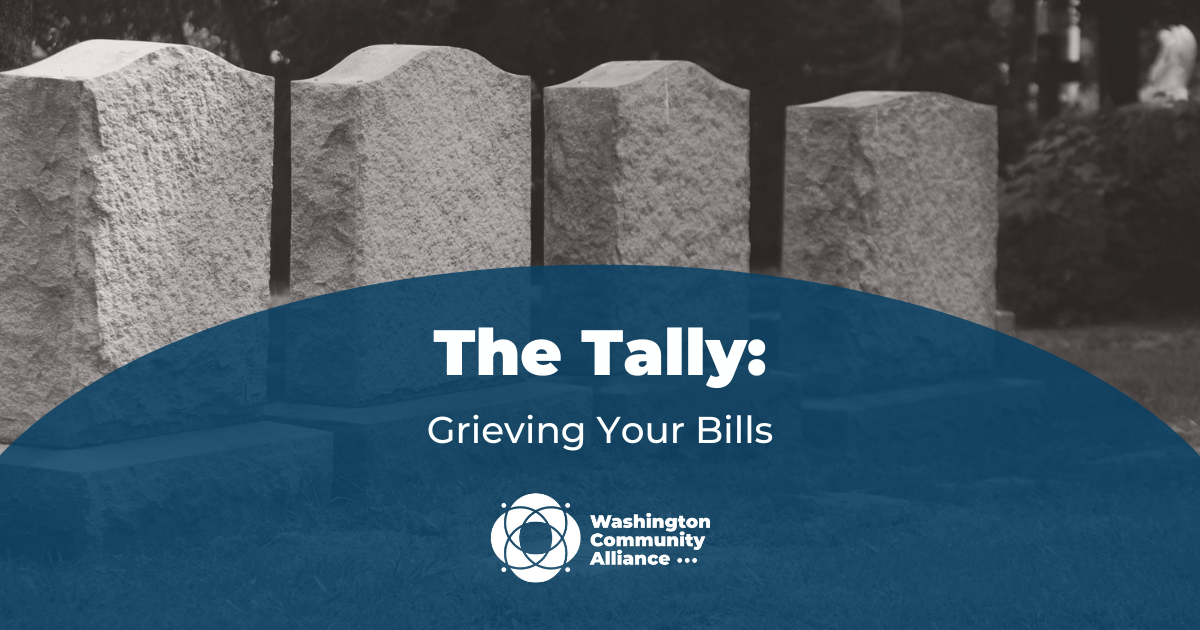
Hey bestie—
Week seven is upon us, and session is moving so fast it feels like we lose another good bill every time you blink.
If you’re a Tally subscriber it’s because you care about your communities and the policies that impact us most. You put yourself out there, share your story, use your time and resources to amplify others’ voices and advocate for the change you want to see in the world. But passion and motivation aren’t always enough down in Olympia.
Don’t get disheartened, just hit those action links and scroll for some cathartic cutoff realness.
🫂 Your Loss is My Loss is Our Loss 🫂
Whether it’s your first session or your 20th, losing out on good policy sucks. Sometimes bills die because there isn’t sufficient community support to signal strong public opinion. Other times bills fail to tactically maneuver the process without getting dragged down and cut to pieces by opposition. And sometimes—in the most depressing way—a bill dies quietly and without cause.
This session, we lost out on a Working Families Tax Credit expansion—meaning seniors and young adults without kids will continue to be excluded from receiving this critical support that puts cash in pockets to cover basics. Our friends, family, and neighbors will continue to struggle. Knowing that legislators have the power to immediately, materially improve others’ lives but won’t is upsetting.
It’s normal to feel grief and anguish. Enter Elizabeth Kübler-Ross’ five stages of grief.
If you have yet to lose a loved one and have a hospice worker shove a condescending pamphlet about grief in your face let us clue you in on the stages:
🙅 Denial: pretending the loss or change isn’t happening allows you more time to process and absorb the information
- “This isn’t happening.”
- “That can’t be true.”
🤬 Anger: masks uncomfortable feelings and pain, helps us validate that something upsetting happened to us
- Rage tweeting electeds
- Op-eds written with white knuckles and gritted teeth
- Retaliation
🤝 Bargaining: a way of trying to take control of our situation while postponing the sadness and hurt
- Claiming a bill is NTIB so it “could still pass” when you know it’s not moving
- “What if” and “if only” statements
- Making sacrificial bloodletting ceremonies to Balloonicorn
🫥 Depression: the overwhelming, heavy, foggy feelings of sadness, despair, hopelessness, and loss that allows us to process and move through our feelings
- “Why keep trying?”
- “I don’t know what to do now.”
- “All our work has come to an end.”
🏁 Acceptance: coming to terms with the loss you experienced and its impact on you now and into the future
- Pivoting strategy
- Identifying what went wrong
- Planning for interim
- Expanding your coalition and base of support
Legislative work can be intense, emotionally laborious, and long. If you’re here, you learned long ago to accept non-closure and to understand the glacial pace of social change. Still, it’s human nature to wish things were better now, not after delayed implementation of a policy that took five years to pass.
It’s okay to grieve. Whether it’s a lost opportunity, not being able to prevent harm, or just getting beat down by bad actors, your grief is valid. There is a great deal of power in organized, collective action. But when things go sideways there is also a great deal of compassion, care, and resilience in collective action as well that should not be ignored. Allow yourself time to grieve your bills. Rely on your network of support, colleagues, and community members to navigate your shared grief. And then dust yourself off and get right back at it in interim.
Most importantly, remember: the work we do to organize and advocate for our communities is important because it’s personal. It matters. You matter. And if no one has said it to you today: Thank you.
What do you think? Have any questions? Tweet us your thoughts @WACommAlliance.
Keep up on the action and opportunities to get involved through our legislative newsletter, The Tally.

